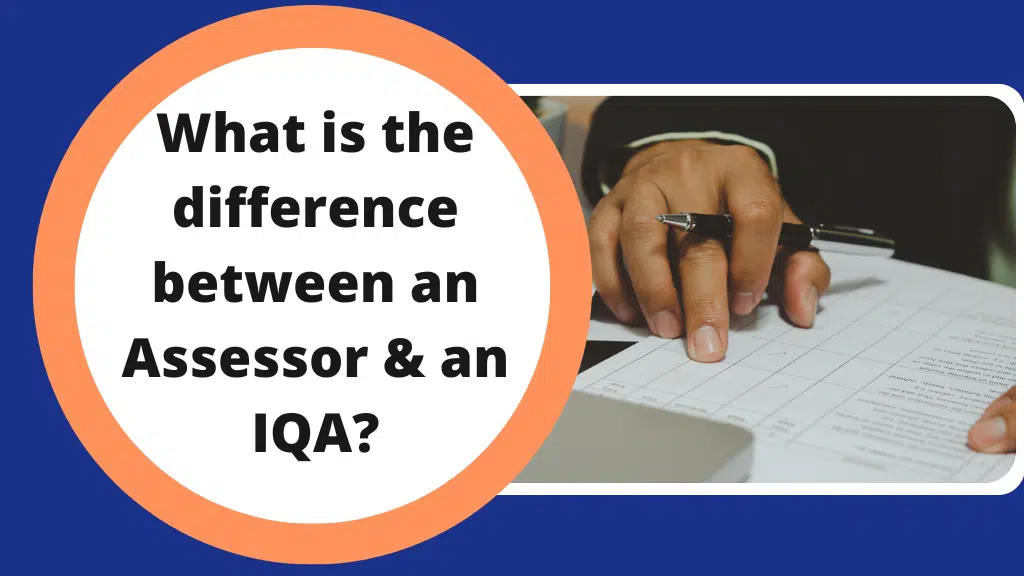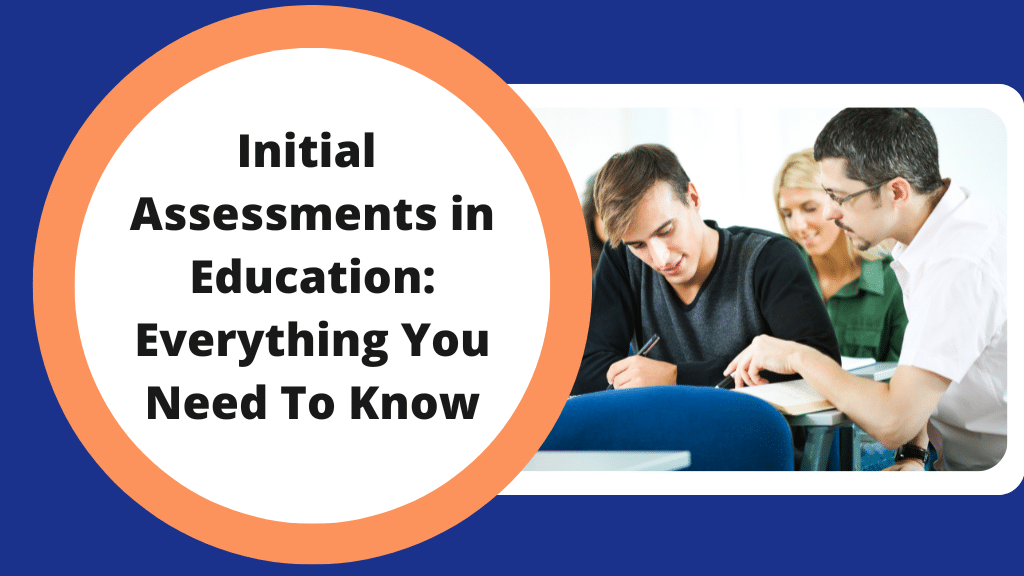June 30, 2025
What is the difference between an Assessor and an IQA?

If you’re exploring a role in training or education, or already working in it, you’ve probably heard of the Assessor and IQA roles. They’re often found in the same department, work closely together, and yes, they both deal with standards and learners. But make no mistake: these roles are not interchangeable.
Let’s break it down clearly so you know the difference between an Assessor and an IQA.
What Does an Assessor Do?
An Assessor is someone who directly evaluates a learner’s skills, knowledge, and performance against the criteria set by the Awarding Bodies. Their focus is the candidate (the learner).
Typical Assessor Responsibilities
- Observe learners performing tasks
- Ask competency-based questions
- Review work portfolios
- Provide constructive feedback and guidance
Assessors are on the front lines of training delivery. They interact one-on-one with candidates, ensuring what’s being taught is understood and done correctly.
Learn more about the roles & responsibilities of an assessor.
What Is an IQA?
IQA stands for Internal Quality Assurer, formerly known as an Internal Verifier. An IQA oversees the assessors, ensuring that assessments are fair, consistent, and meet all regulatory standards.
Core IQA Duties
- Monitor assessor performance
- Sample assessment decisions
- Audit records and compliance
- Liaise with candidates and assessors to ensure quality control
Although their tasks may look similar to an Assessor’s, they often carry this out on the Assessors, rather than the candidates. Think of the IQA as the quality controller of the assessment process. They’re not assessing learners, they’re making sure assessors are doing their job correctly.
Learn more about what IQAs do.
Assessor vs IQA: The Main Difference
You should think of the process as being part of an ecosystem. There are candidates, and Assessors are immediately above them. Then, the IQAs will oversee the entire process.
The distinction between assessors and internal quality assurers (IQAs) is their focus and scope of duties. Assessors actively engage with learners, shaping their educational experience, while IQAs oversee the quality and reliability of assessments.
Picture the structure like this:
- Candidates are assessed by Assessors
- Assessors are monitored by IQAs
So while assessors focus on learner performance, IQAs focus on assessment integrity.
Difference between Assessor and IQA Qualifications
Assessor Qualifications
To become an assessor, most people complete a Level 3 CAVA Course, known as the Level 3 Certificate in Assessing Vocational Achievement. It’s the gold standard for entering the profession and qualifies you to assess learners both in the workplace and in classroom settings.
Depending on your specific goals, there are also two other nationally recognised Level 3 routes:
- Level 3 Award in Assessing Competence in the Work Environment
- Level 3 Award in Assessing Vocationally Related Achievement
All three are designed to suit different contexts, whether you’re working on-site with apprentices or evaluating coursework.
IQA Qualifications
IQA qualifications are more advanced and typically a level 4 qualification, such as the Level 4 IQA Award in the Internal Quality Assurance of Assessment Processes and Practice. This is one of the industry-leading qualifications, developed in conjunction with City & Guilds. It’s ideal for experienced assessors ready to move into quality oversight and play a more strategic role in the training process.
There are also more specialised IQA courses, such as the:
- Level 4 IQA Award (Theory Only)
- Level 4 Lead IQA for those managing quality assurance teams.
Career Progression: Where Can Each Role Lead?
Working as an Assessor can be a strong foundation for a long-term career in vocational training. Many assessors eventually move into IQA roles as they gain experience and confidence in managing standards. From there, opportunities open up in centre management, curriculum development, or external quality assurance with awarding bodies.
For those who start as IQAs, or who make the transition successfully, career progression often leans into leadership: managing assessor teams, shaping quality policies, or advising across multiple training centres. It’s a role that commands trust and often becomes a stepping stone into strategic positions within the education sector.
Ready to Take the Next Step?
If you’re considering a future as an Assessor or Internal Quality Assurer, Carlton Training offers all the qualifications you need, online or in-house. Book your course online today or reach out to our team to discuss your options.
Next ›‹ Previous
Back to Blog








